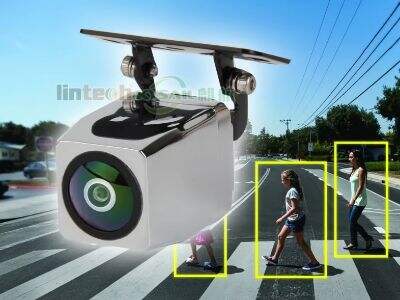Being experts for the industry, we offer the largest variety of Radar liquid level sensors to meet the need of the liquid level measurement in nearly any location. The sensors emit radar waves that bounce off the surface of the liquid and back to the sensor. Measuring the time it takes for the waves to return allows the sensor to calculate how much liquid there is.
Radar Liquid Level Sensors: Principles of Operation
Types of Radar Liquid Level Sensors and Its ApplicationsRadar level sensor employs the use of radar technology to measure the level of liquids in tanks or containers. In contrast to traditional sensors that use floats or sticks to measure, radar sensors do not have to be in contact with the liquid in order to read an accurate reading.
Advantages of Implementing Radar Technology
Radar Technology for Liquid Level Measurements — Applications & Advantages The special benefit of radar sensors is that they can measure liquids in containers and tanks of all shapes and sizes. So they are making them useful in so many different industries.
Another benefit is that radar sensors can handle challenging conditions. They can measure liquids even in extremely high temperatures, high pressure, or with chemicals without any loss of precision. This makes them great to use in industrial environments where conditions can be demanding.
Radar Sensors: How Do They Work to Achieve Accurate Measurements
In liquid level sensors, radar waves are sent to calculate the level of liquids. These sensors have specific technology for self-compensating for changes in temperature, pressure and density, which influence the accuracy of measurements. This allows radar sensors to give reliable results under changing situations.
Types of Radar Technology Used
There are several industries in which the measurement process of levels of liquids is highly sensitive and with the introduction of radar technology, it has become a break through in those industries. Radar sensors are utilized in industries like oil and gas,millimeter wave radar sensor chemicals, and water treatment to measure liquid levels in tanks. It reduces spills, leaks, and overfills.
Radar sensors are also very dependable and low-maintenance in nature, which means time and money savings. They provide real-time information on liquid levels, enabling operators to make smart decisions and adjust their work accordingly.
The Significance of Parking Sensor System
For instance, radar liquid level sensors have a critical function of allowing industries to run smoothly. They give employees the capability to track liquid levels in real time, avoiding accidents and downtime.
Therefore, 77G Radar Sensor employ radar technology in measuring the levels of liquids in tanks or containers. They have a number of advantages — they are convenient, precise and reliable, and they are prevalent in various industries. Familiarity with how radar sensors work and their contribution to guaranteeing smooth operations will enable companies to make their processes more efficient and keep their operations under secure boundaries.

 EN
EN
 AR
AR
 HR
HR
 CS
CS
 DA
DA
 NL
NL
 FI
FI
 FR
FR
 DE
DE
 EL
EL
 IT
IT
 JA
JA
 KO
KO
 NO
NO
 PL
PL
 PT
PT
 RO
RO
 RU
RU
 ES
ES
 SV
SV
 IW
IW
 ID
ID
 LV
LV
 LT
LT
 SR
SR
 SK
SK
 SL
SL
 UK
UK
 SQ
SQ
 ET
ET
 HU
HU
 TH
TH
 TR
TR
 FA
FA
 AF
AF
 MK
MK
 KA
KA
 UR
UR
 BN
BN
